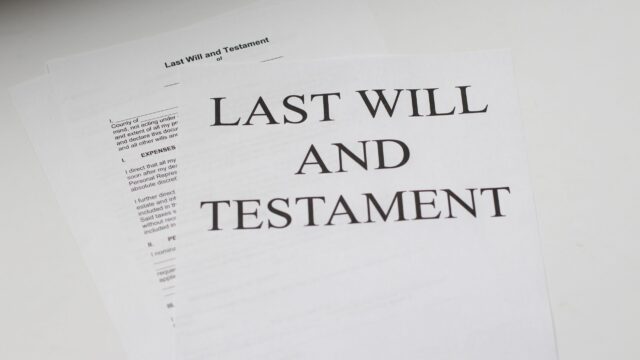Generally speaking, everyone dreads writing their last will and testament or talking about an estate plan. One day, the reality of life hits us all like a boulder rolling down a steep mountainside. Putting your affairs in order, ensuring your legacy lives on with your loved ones, may be easier than you think.
Some employer and union benefits packages offer free legal services to draft wills, healthcare proxies, powers of attorney, etc. The most familiar case I can think of is the soldier sitting down with a lawyer to update his/her will the day before flying overseas to a war zone. Those services may be appropriate for young people starting off in life with no major assets or unique familial issues or concerns. In essence, free services are great for some, but fail to tailer to, and meet, the individual needs of all families.
Your will is a legal document that provides specific instructions for the distribution of your assets at the time of death. A will appoints an executor responsible for the distribution of assets and must be witnessed by two people. An estate that uses a will as the primary mechanism to distribute assets at death must go through the probate process. What does this mean? The probate process is a court process that reviews the will, publishes the document to those who have standing to challenge it, provides the executor with letters testamentary (the legal authority) to distribute property and assets as prescribed in the will, and account for and close-out the estate. The probate process can be lengthy and result in significant legal expenses and court fees. Often, proposed executors listed in a will who hold a power of attorney will continue to pay bills and manage accounts after a person’s death and before the letters testamentary are issued by the surrogate’s court. This is a common mistake and exposes the proposed executor to liability. It is important to know that authorizations granted by a power of attorney expire at death. In a county where the surrogate’s court meets once a month, it could take months between the time of death and the executor’s receipt of the letters testamentary. During this time period, all assets in the estate must remain frozen.
If drafted correctly, a revocable trust can and will avoid the need for probate and alleviate your heirs from the burden of waiting months for the distribution of assets. For instance, let us imagine that you have a home that is valued at $400,000.00 at the time of passing and your will states that you wanted the house sold and the assets distributed to your heirs in equal shares. The average timeframe for issuance of letters testamentary is between 6 and 12 months in New York counties outside of New York City. Let us further imagine that during that 6 to 12 month period the housing market fluctuates down and the fair market value of your home falls to $350,000.00 and your executor is forced to sell it at $320,000.00. Now your heirs are at a loss of $80,000.00; furthermore, your estate is still taxed at the $400,000.00 rate as your assets are valued at the time of passing and not at the time of distribution. That 6 to 12-month timeframe is now seen as a financial detriment to your heirs. Another aspect to think about is that without a trust, no legal mechanism will allow for the rental or lease of the home while the estate is awaiting probate. If your home could be rented out at $3,000.00 per month during this 6 to 12 month period, your heirs could lose another $18,000.00 to $36,000.00 in assets.
The revocable trust is a legal mechanism that will allow you to avoid probate, thus ensuring your heirs the maximum value of assets. In essence, the revocable trust (also called a living or lifetime trust) is a contract between the creator and trustee in which the trustee agrees to administer the trust in accordance with the creator’s instructions. Legally, the beauty of such a trust is that the creator and trustee can be the same person throughout one’s lifetime. A successor trustee will take over at the time of incapacitation and/or death and have the legal means and authority to distribute the estate’s assets found in the trust without going through probate.
A common mistake is that many people fail to fund their trust during their lifetime. Generally, assets outside of the trust will still require probate, thus eliminating the benefit of seeking a trust in the first place. There are solutions. A general solution is the simultaneous creation of a pour over will that works hand-in-hand with the trust. Again, every situation is different, therefore, it is important to consult an attorney that can provide you with a comprehensive estate plan that will meet your goals and maximize distribution of your assets to your heirs instead of the government. Call us today for a free consultation to speak about your family’s goals.
-Andres D. Gil, Esq.
DISCLOSURE: THIS BLOG POST IS NOT MEANT TO PROVIDE LEGAL ADVISE OR ASSISTANCE. NO ATTORNEY-CLIENT PRIVILEGE OR RELATIONSHIP WILL FORM AS A RESULT OF THIS BLOG POST. THE POST IS MEANT FOR EDUCATIONAL PURPOSES ONLY. CONSULT A LAWYER TO DISCUSS YOUR INDIVIDUAL LEGAL NEEDS.
 ?>
?>


